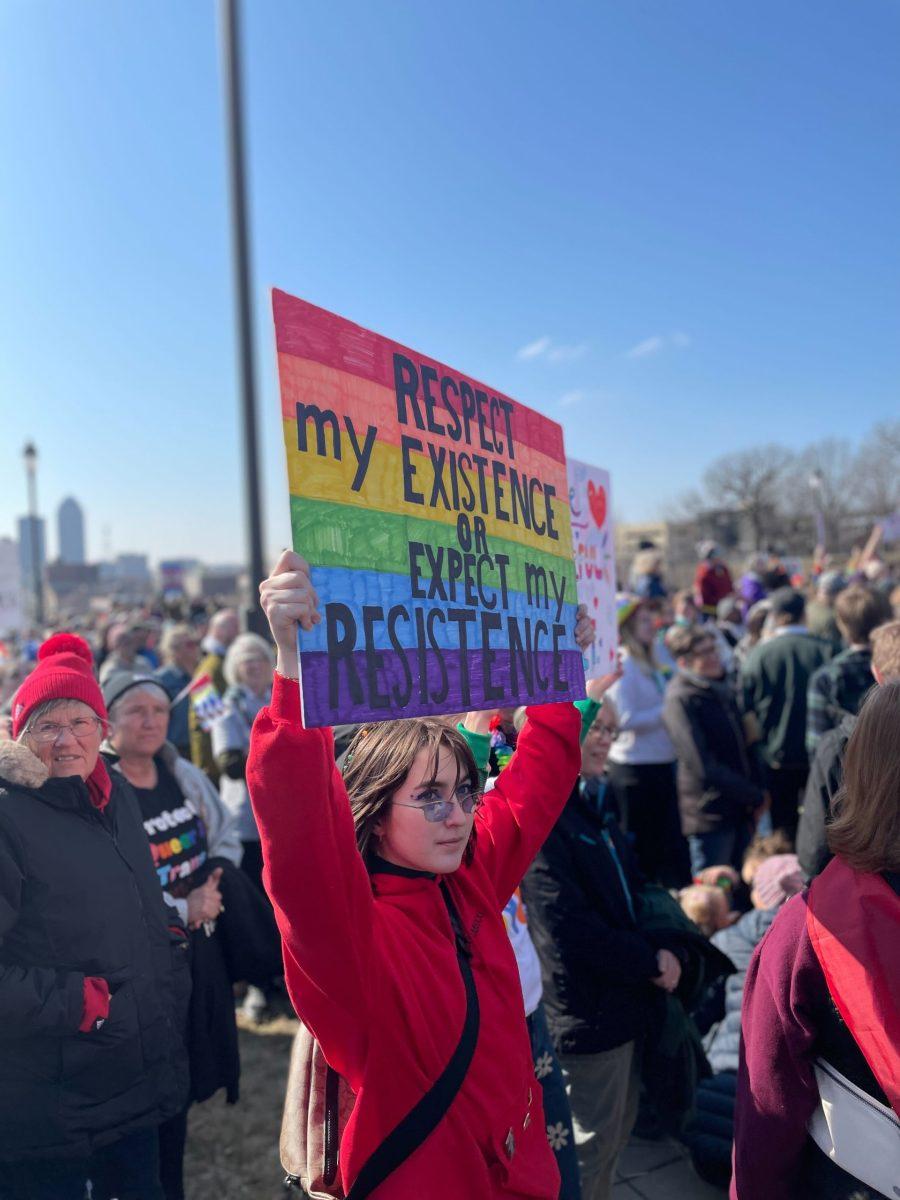Tense debates have swept the nation following a recent surge in legislation on LGBTQ+ issues, such as Florida’s “Don’t Say Gay’’ bill and Missouri’s drag queen ban.
Conversion therapy is another prominent issue in recent debates.
Conversion therapy is defined by the Gay and Lesbian Alliance Against Defamation (GLAAD) as the practice of attempting to change a person’s sexual orientation, gender expression or identity.
According to a PBS poll, 60% of Iowans are against the use of conversion therapy in Iowa, even though recently it has turned into a primary platform piece of politics.
“I would say that general Iowans, if they know what [conversion therapy] is, would have, at the very least, moral issues with how [conversion therapy] is enacted,” said Rachel Jalloway, president of Rainbow Union, a organization that provides safe spaces for LGBTQ+ students. “It’s hard to label one thing for a whole population, especially considering Iowans have different experiences and beliefs from one another.”
The practice is currently banned in 22 states and Washington D.C., but the debate surrounding the issue is far from over. For residents of Waterloo, Iowa, the debate has hit closer to home as of late.
Waterloo passed a ban on conversion therapy in May 2023. In late June 2023, an effort to ban conversion therapy nationwide was reignited in the U.S. House of Representatives.
Following a letter threatening litigative action from Florida-based religious non-profit Liberty Counsel, the Waterloo City Council convened to discuss a repeal of the conversion therapy ban.
At an Aug. 21 city council meeting, members of the wider Waterloo community had the opportunity to voice their opinions.
Advocates for the ban’s repeal argued for religious protection and parental rights. Advocates against the ban’s repeal cited scientific research and personal experiences to argue that the practice is ineffective. After the city council heard the public’s opinion, they voted to repeal the ban.
Almost immediately following the repeal, public outcry ignited against the decision. Members of the Waterloo community spearheaded protests and — along with Councilman Jonathan Grieder, who originally proposed the ban — expressed their frustrations with what they considered a step backward in basic human decency.
The vote to repeal this ban marked Liberty Counsel’s first success toward eradicating conversion therapy bans across the state. The organization has now turned its attention to the other two places in Iowa that currently have a conversion therapy ban: Linn County and Davenport.
“I haven’t seen major changes in Iowa legislation regarding LGBTQIA+ until recently with Waterloo allowing conversion therapy, and I think it’s a dangerously slippery slope,” said Aaron Khan-Gumm, vice chair of the Drake Democrats.
Outside of Iowa, the Liberty Counsel has also broadened their attention to the nation as a whole, pushing forward related litigation to the U.S. Supreme Court in order to streamline a repeal on all bans across the U.S.
Liberty Counsel founder Mat Staver is confident that the judicial process will go smoothly, stating in numerous interviews his organization’s intentions to pursue legal actions against laws or bans that do not align with the predicted outcome of the Supreme Court’s ruling.
With two remaining standing ordinances in Iowa, the future will be decided by the Liberty Council’s capability to utilize the judicial and legal system to push their prerogative.
“I think it’s just a really unfortunate time for Iowa right now,” Khan-Gumm said. “Hopefully, this is just a little stain on our history and we start moving in a positive direction.”







